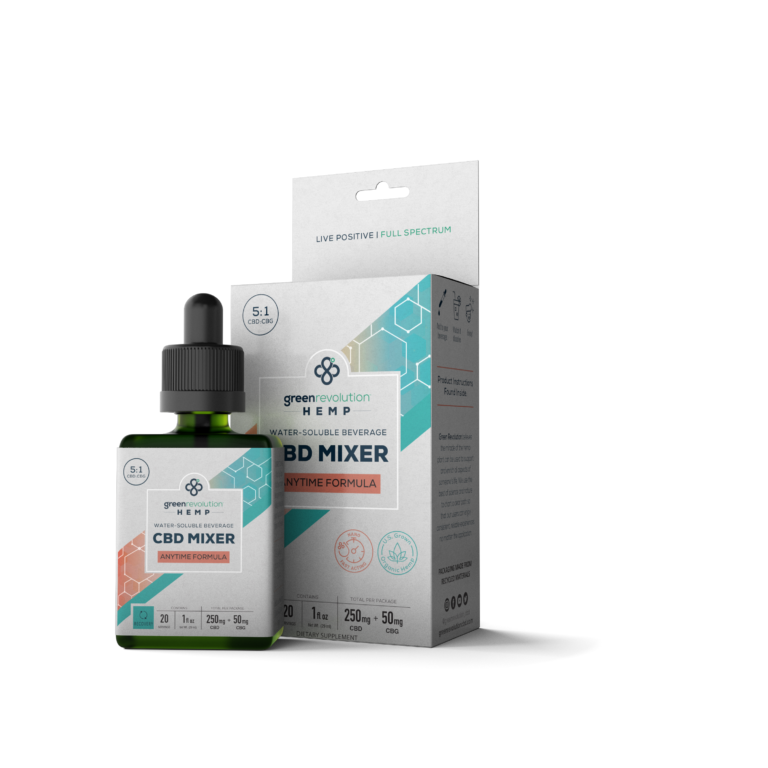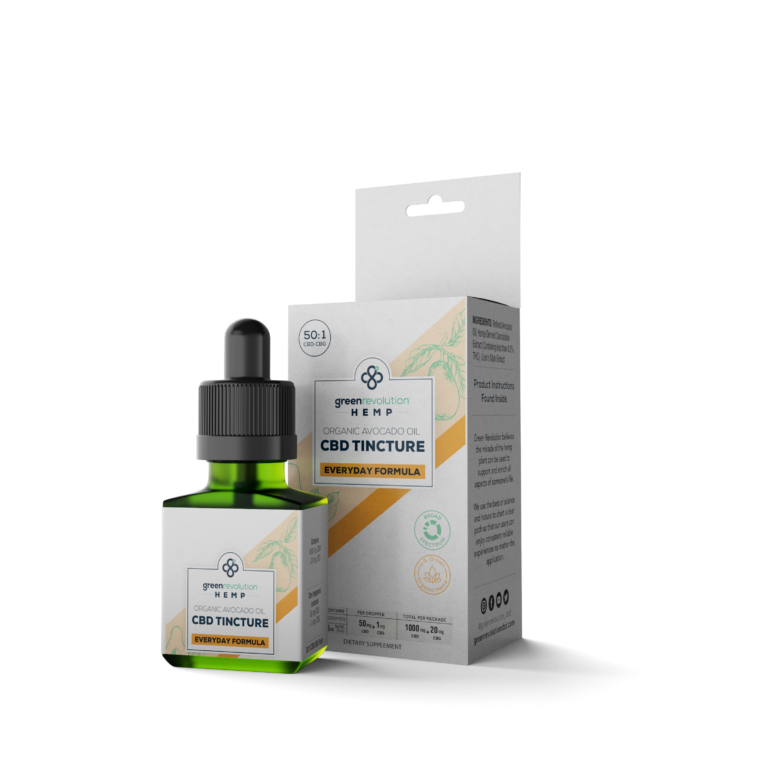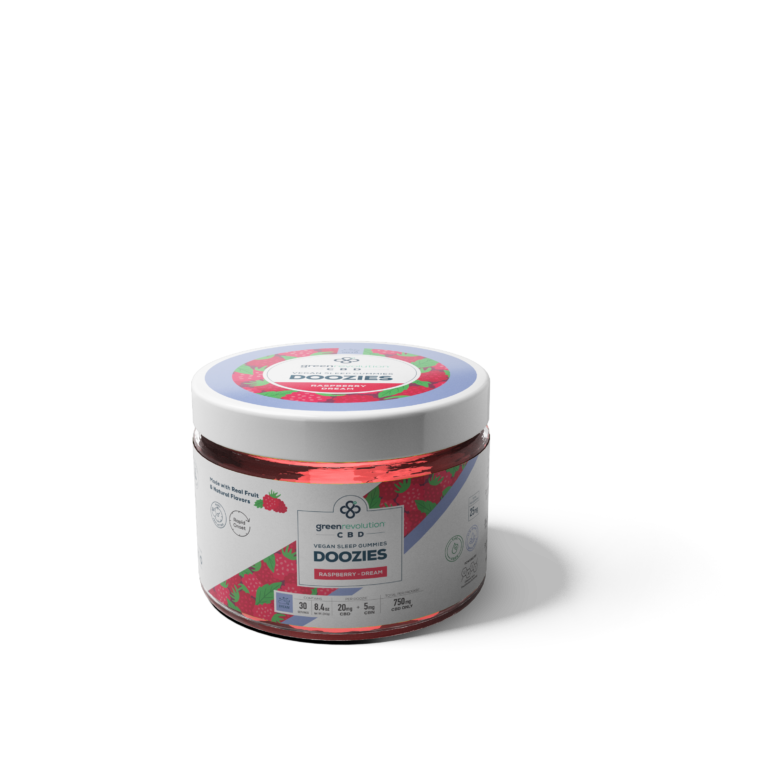Expert Advice on CBD Oil Dosage: Finding Your Balance
Finding the right CBD oil dosage for your individual needs is important. This comes down to striking a balance between things like body weight and the severity of symptoms.
To figure out the correct CBD oil dosage, you should consider input from other healthcare professionals, especially if you are trying to treat a specific condition. Beyond that, you should also take time to get to know the labeling on your CBD oil products.
CBD oils come in different concentrations, and that concentration refers to how much CBD oil exists in the bottle. Common concentrations are listed as follows:
- CBD oil 50 mg
- 500 mg CBD oil
- CBD oil 750 mg
- 1000 mg CBD oil
- 1500 mg CBD oil
- 2000 mg CBD oil
You might also see the dosage listed as a percentage, like 10% or 5%, which indicates the percentage of the total volume made up by CBD or other cannabinoids.
CBD oil concentration can impact dosage and effectiveness.
For example:
Something that says 1500 mg CBD oil is going to be 30 times more concentrated than CBD oil 50 mg.
This means that the amount of oil you need to achieve the same effectiveness will be a fraction of a 50 mg bottle compared to a 1500 mg bottle.
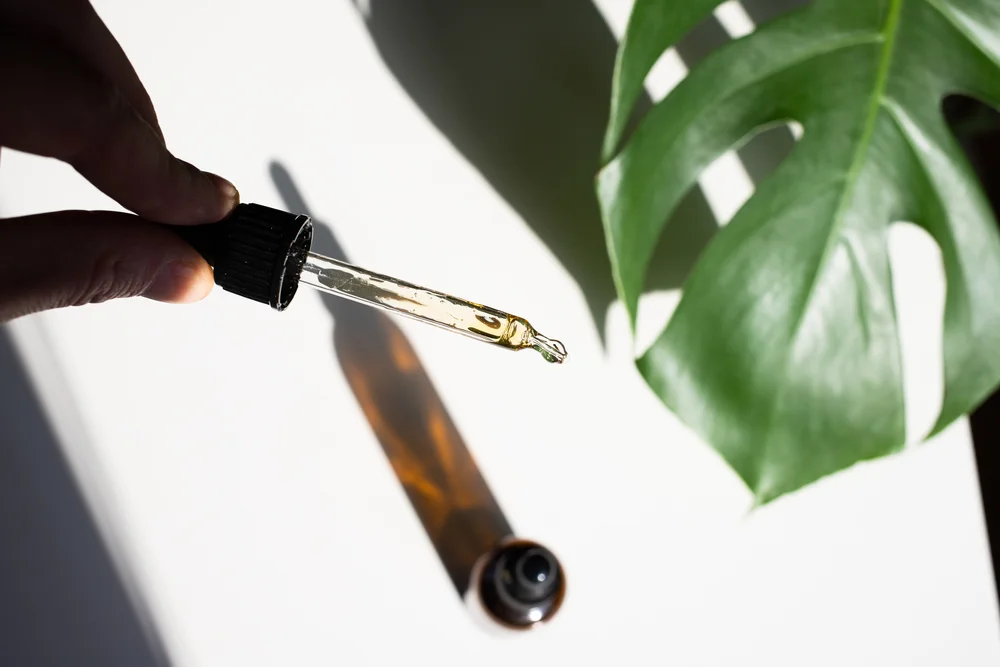
Factors influencing CBD oil dosage
Several factors can influence the right dosage for you, including the following:
Body weight and size
Your weight is one of the most common ways to calculate the right dose, especially for mild symptoms. In general, it’s recommended that you consume 10 mg per 100 lb.
The more you weigh, the different your metabolism will be, and the more CBD oil you will need to achieve the same results.
Severity of symptoms or conditions
The severity of your symptoms has a direct influence as well. On average, the calculation is three times as much for moderate symptoms compared to mild symptoms and three times as much for severe symptoms compared to moderate symptoms.
For example:
Someone weighing 150 lb with mild symptoms might only need 15 mg per serving, but with moderate symptoms, they would need 45 mg, and with severe symptoms, they would need 90 mg.
Tolerance to CBD
Anyone using CBD products long enough will develop a tolerance. If you already use CBD products regularly, you are more likely to meet a slightly higher dose to achieve the same results because of that tolerance. Moreover, the longer you use CBD products as treatment, the higher the likelihood that, at some point, you will need to gradually increase your dose to maintain the same results.
Metabolism and digestive health
Your metabolism and digestive health also play a significant role. People with a faster metabolism will burn through the endocannabinoids in CBD oil much faster, and that means they don’t enjoy the results for as long. In these cases, considerations for the frequency of dosing as well as the dosage amount are imperative.
Desired effects and personal goals
The desired effects and personal goals you have will also influence how much you take. If you are seeking minor relief from acute anxiety, how much you take is going to differ wildly from someone looking to treat chronic pain conditions with severe symptoms.
Step-by-step guide on how to begin with CBD oil dosing
If you are just starting out with CBD oil dosing, follow these steps:
Step 1:
Know your weight. Weigh yourself regularly just to be on the safe side so that you know what the proper dosage is for your body.
Step 2:
Start with a low dose that is appropriate for you. For this, you need to consider any tolerance you might have if you are a regular CBD user or the exact opposite intolerance if you are brand new.
Step 3:
Remain consistent with a low dose for several weeks. Use a journal to keep track of any potential side effects or reactions you had, as well as the benefits you felt. Again, this should be done for several weeks in a row in a consistent fashion.
Step 4:
Once you have determined no ill side effects, you can start to gradually increase your CBD oil dosage until you get the achieved results. Over time, you may or may not develop a tolerance depending on how frequently and how much you use. By keeping a journal or consistently tracking how much you are using, you’ll know if and when it’s time to slightly increase the dose you are taking to maintain the same results.
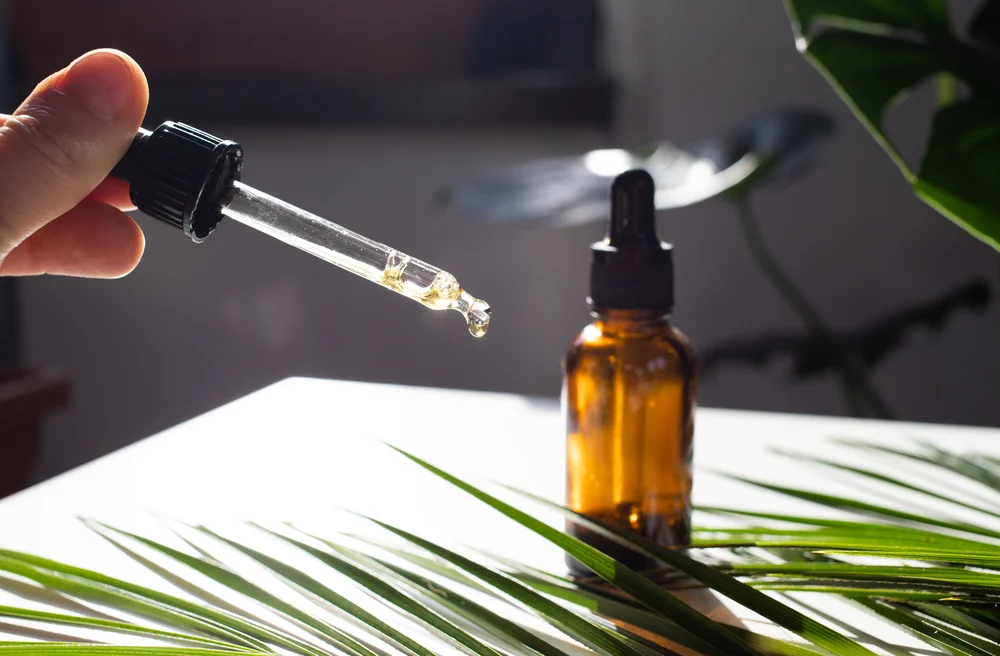
Dosage recommendations for various conditions
With a CBD oil dose, the amount you use will be different for various conditions.
On average, the recommended dose is between 20 mg and 40 mg per serving, but treatment of health conditions might need something much higher. Moreover, it will also differ contingent upon the severity of the symptoms of that condition. The table below provides a quick breakdown of different conditions and different severities.
| Weight | How much to try, on average, for mild symptoms | How much to try, on average, for moderate symptoms | How much to try, on average, for severe symptoms |
| 100 pounds | 10 mg | 30 mg | 60 mg |
| 110 pounds | 11 mg | 33 mg | 66 mg |
| 120 pounds | 12 mg | 36 mg | 72 mg |
| 130 pounds | 13 mg | 39 mg | 78 mg |
| 140 pounds | 14 mg | 42 mg | 84 mg |
| 150 pounds | 15 mg | 45 mg | 90 mg |
| 160 pounds | 16 mg | 48 mg | 96 mg |
| 170 pounds | 17 mg | 51 mg | 102 mg |
| 180 pounds | 18 mg | 54 mg | 108 mg |
| 190 pounds | 19 mg | 58 mg | 114 mg |
| 200 pounds | 20 mg | 60 mg | 120 mg |
| 210 pounds | 21 mg | 63 mg | 126 mg |
| 220 pounds | 22 mg | 66 mg | 132 mg |
| 230 pounds | 23 mg | 69 mg | 138 mg |
| 240 pounds | 24 mg | 72 mg | 144 mg |
| 250 pounds | 25 mg | 75 mg | 150 mg |
Dosage recommendations for specific conditions
Several studies offer basic recommendations for the amount that is more appropriate to treat specific conditions, but these treatments also require that you take into account how much you weigh and how severe your symptoms are.
Anxiety
Anxiety disorders have some of the higher dosage recommendations. Those who are treating an anxiety disorder might be recommended to take CBD oil 750 mg for severe symptoms. Though mild symptoms have a recommendation between 300 to 600 mg CBD.
Sleep
Sleep disorders typically have a lower recommendation, below CBD oil 50 mg marks, starting at 25 mg per day.
Epilepsy
For those who struggle with epilepsy and seizures, recommendations might be upwards of 1500 mg CBD oil for higher weights, though the starting point for mild symptoms is 75 to 300 mg CBD.
Chronic Pain
CBD can increase anandamide levels in the body, which regulates pain. It can decrease inflammation. It can also treat chronic pain like neuropathic pain.
Chronic pain recommendations (such as cancer-related pain) might be CBD oil 50mg at a time, up to 500mg CBD oil, or even 600 mg.
Note: With all of these, the starting recommendation may hover around 25-50 mg, but how to dose CBD oil for legitimate health concerns, not just a couple of weeks’ worth of stress/insomnia, means working with a healthcare provider. If you are, for example, treating an anxiety disorder or chronic pain, work with your doctor to see if you need a higher dose like 1000 mg CBD oil, 1500 mg CBD oil, or even 2000 mg CBD oil based on your symptoms.
Therapeutic dosages vs. maintenance dosages
Equally important when figuring out how to dose CBD oil for specific conditions is understanding the difference between therapeutic doses and maintenance doses.
As the name suggests, maintenance dosages in medicine are designed to maintain. This might be maintaining equilibrium in certain enzymes or reactions in your body where you might have a deficiency.
This differs from therapeutic dosages, which are designed to treat a condition by changing or modifying things within your body.
For example:
Someone struggling with chronic pain might want to maintain normal levels of inflammatory response, whereas someone struggling with an anxiety disorder might need a therapeutic dosage that helps alter the way in which certain parts of the brain are functioning.
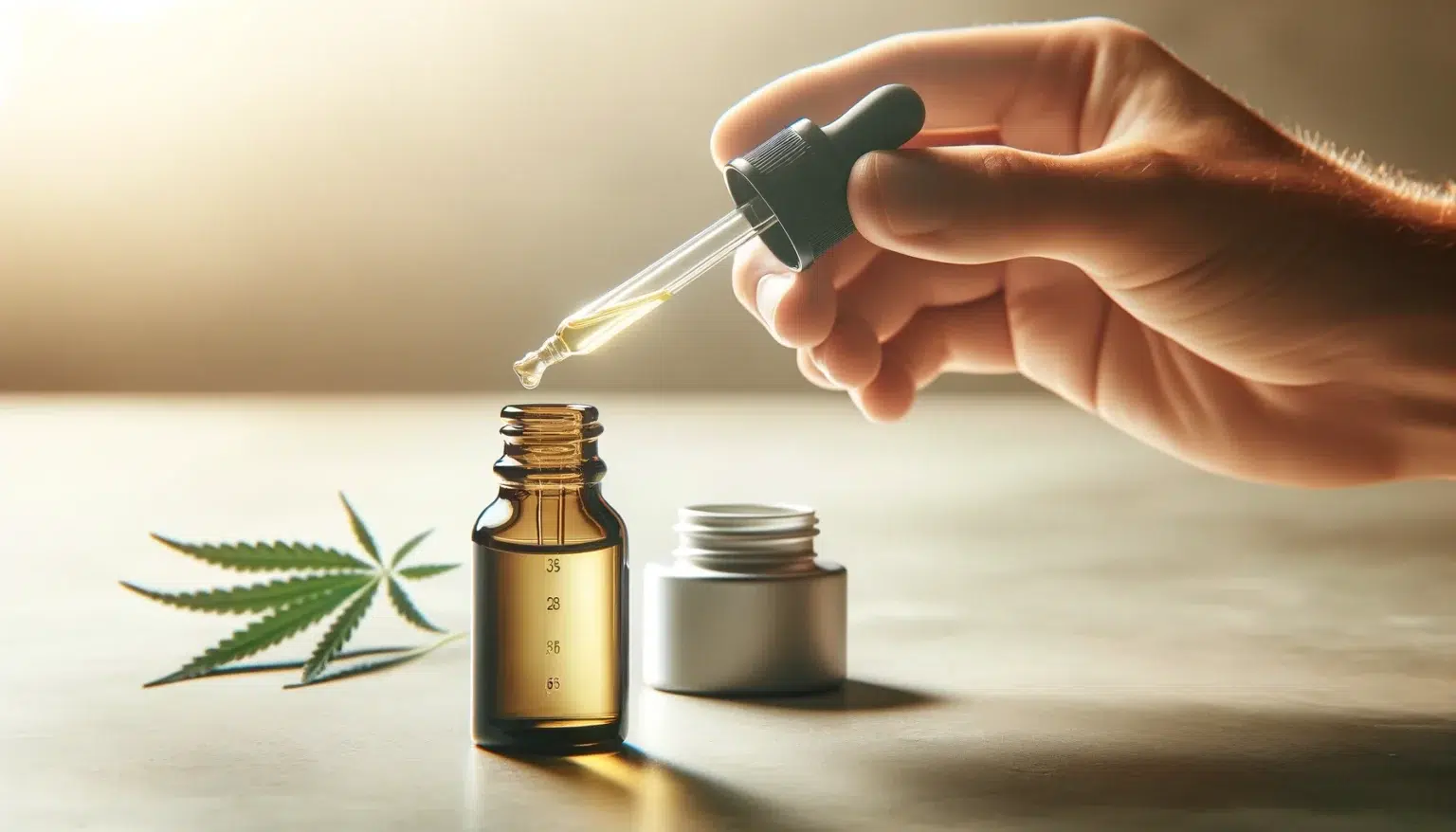
Frequent errors in dosing CBD oil and how to avoid them
If you are interested in optimal results, you want to avoid these frequent errors.
Error #1: Going at it alone
One of the most common errors when it comes to dosing CBD oil is trying to do it alone without any other input from healthcare professionals.
How to avoid it:
You can avoid this mistake by seeking guidance from your doctor or mental health professional, especially if you have a pre-existing condition or you are taking other medication.
Error #2: Taking too much
The next most common error is assuming that more is always better and taking too much on accident. You don’t want to take 2,000 mg CBD oil when you were advised to take 1,000 mg CBD oil just because you think twice as much will be twice as effective.
How to avoid it:
Avoid doing this by sticking to the right guidance for several weeks in a row. maintain the same low dose as you start, and keep a journal to monitor your results. Only increase gradually once you have done so. Don’t make the mistake of thinking that because you took CBD oil 750 mg and after 2 days you didn’t feel results, you should jump to 1500 mg CBD oil the next day.
Error #3: Thinking it works the same
A lot of people think that a CBD oil dose is the same for everyone, no matter how much they weigh or what condition they are treating. It’s not uncommon to know someone who is using CBD treatment for something, ask how much they are taking, and then assume that’s the right amount for you or to do the same thing after reading a blog post or comment thread online.
How to avoid it:
You can avoid this by recognizing that CBD oil dosage works differently for everyone based on factors like age, metabolism, tolerance, weight, and health conditions. when you look at the CBD oil you have, it will provide a recommendation range, but you can always start with a lower dosage or go off the recommendation from a healthcare professional.
Summing Up
Finding the right CBD oil dose for your individual wellness goals is important. You need to know what factors like body weight, severity of symptoms, tolerance, and metabolism will influence CBD oil dose recommendations for your situation. You also need to know how to dose CBD oil based on your needs and not to make common mistakes like taking 1,000 mg CBD oil two days after taking 500 mg CBD oil because you didn’t see results immediately. Approach CBD oil use with informed caution and professional advice.
Frequently Asked Questions
The ideal CBD oil dosage for sleep varies among individuals. Starting with a low dose, such as 10-25mg of CBD before bedtime, and gradually increasing until you find what works best for your body is recommended.
To dose CBD oil, start with a small amount, typically a few milligrams, twice a day. Gradually increase the dose every few days as needed until you achieve the desired effects. Always consult the product’s dosage guidelines and consider factors like your weight, the condition being treated, and the concentration of CBD in the product.
While CBD is generally considered safe, taking excessive amounts may lead to side effects such as drowsiness, gastrointestinal discomfort, or changes in appetite. It’s best to adhere to recommended dosages and consult with a healthcare provider if you’re unsure.



